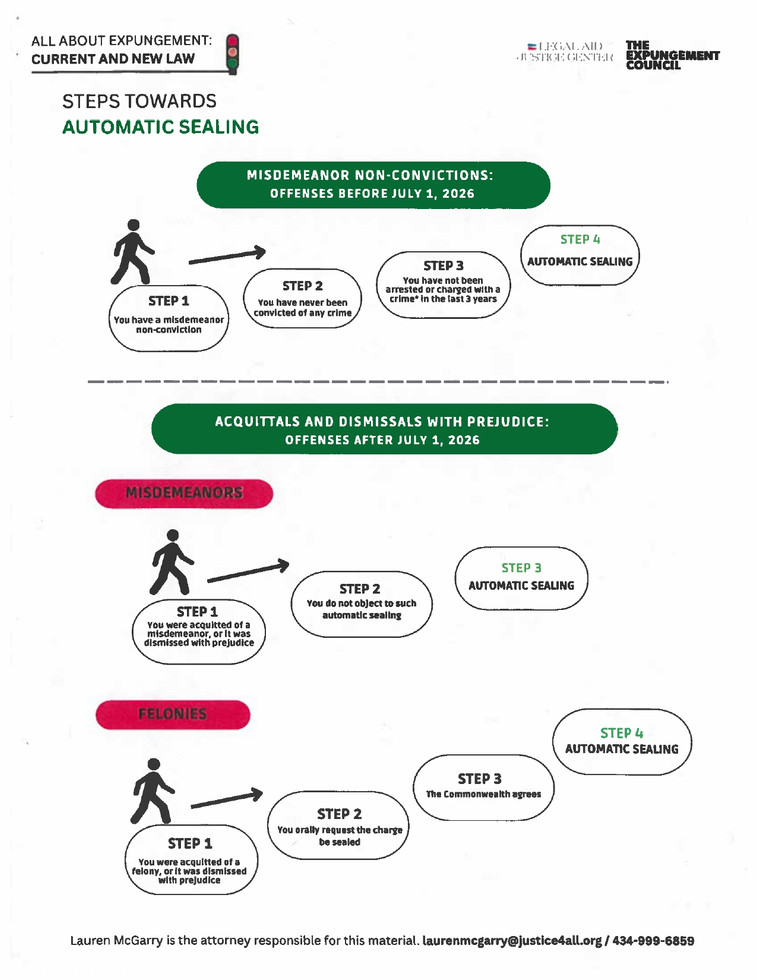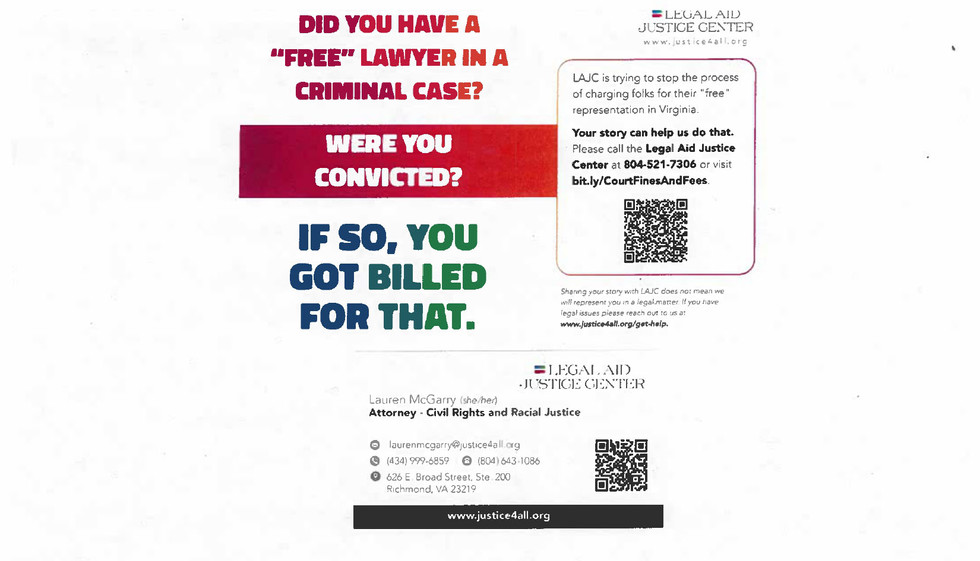Clean Slate Act in Virginia
- FailSafe-ERA
- Jul 15, 2025
- 3 min read
Virginia's Clean Slate Act: overview and implementation
Virginia's Clean Slate Act is a new law, passed in 2021, that significantly expands eligibility for sealing criminal records in the state. The act aims to provide individuals with a "second chance" by allowing certain convictions and non-convictions to be hidden from public view, potentially improving opportunities for employment, housing, and education.
Key aspects
Sealing vs. Expungement: While Virginia previously only offered expungement for non-convictions (charges dismissed, found not guilty, or nolle prosequi) based on demonstrating actual innocence, the Clean Slate Act introduces the concept of "sealing" convictions.
Sealing restricts dissemination: Sealed records are not destroyed, but their dissemination is restricted, making them inaccessible for most background checks conducted for standard employment or by educational institutions.
Eligibility expansion: The Act expands eligibility for record clearing to include certain misdemeanor and felony convictions, as well as some non-convictions.
Automatic and petition-based sealing: The Act establishes a system for automatic sealing for some charges and convictions, while others require a petition to be filed with the court.
Implementation and effective date
The implementation of the Clean Slate Act was originally scheduled for July 1, 2025, but was delayed to July 1, 2026, to allow courts and the Virginia State Police to update their recordkeeping systems and accommodate the new legislation.
However, specific provisions of the Act have different effective dates, with some taking effect in July 2025 and others, including the automatic sealing provisions, potentially taking effect later.
There were concerns about the delayed start date, with some advocates suggesting early filings to avoid a surge of petitions.
Eligibility criteria
Waiting Periods: Generally, a 10-year waiting period applies for sealing felonies (with no new convictions during that time) and 7 years for misdemeanors (with no new convictions).
Specific Exclusions: Records of domestic assault, DUI, and sex offenses are not eligible for sealing.
Other Restrictions: Individuals with Class 1 or 2 felony convictions, or charges carrying a life sentence, are ineligible. Certain Class 3 or 4 felony convictions within the past 20 years, or any felony within the last 10 years, can also disqualify applicants.
Rehabilitation: Evidence of rehabilitation is required for offenses involving drug dependence.
Benefits and impact
Improved Opportunities: Sealed records can help individuals with past convictions secure employment, housing, and access to educational opportunities by removing barriers imposed by public background checks.
Addressing Barrier Crimes: Sealed convictions may no longer be considered "barrier crimes" under state law, potentially opening up employment opportunities in fields like healthcare or education.
Fairer Hiring Practices: The act aims to promote equity and reduce discrimination against individuals with criminal histories by limiting the availability of certain criminal record data to employers.
Criticism and concerns
Limitations and Disparities: Critics argue that the law may be too limited in its scope and might inadvertently perpetuate racial disparities in the criminal justice system.
Impact on Employer Practices: Some express concerns that sealing records might lead employers to guess about applicants' criminal histories and potentially increase discrimination against groups with higher rates of criminal records, as observed with "Ban the Box" policies.
Accuracy of Records: The effectiveness of sealing might be limited by the existence of inaccurate or incomplete criminal record information from private vendors, which may not be automatically updated or removed.
Limited Access to Information: Some argue that the law prevents access to valuable insights into the fairness of the court process and raises First Amendment right of access concerns.
It is important to note that the Virginia Clean Slate Act is a complex piece of legislation with ongoing developments. Individuals seeking to seal their records or employers needing to understand their obligations under the Act should consult with legal professionals and stay informed about the latest revisions and regulations.



















